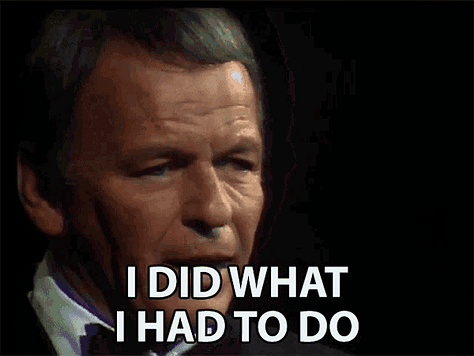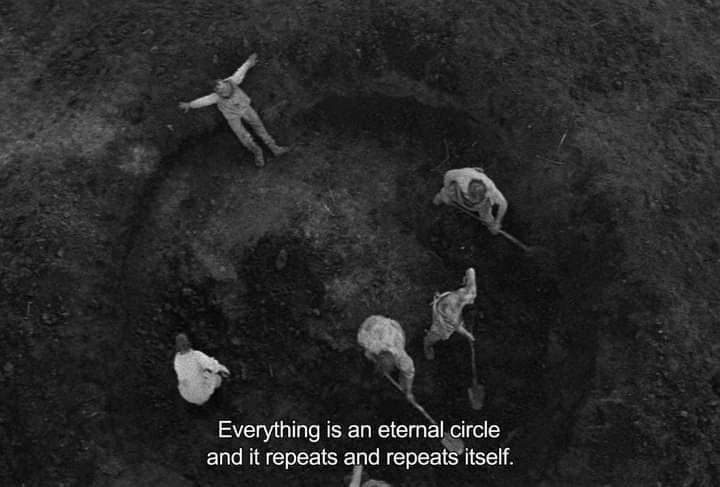Breaking Bad by the Numbers: An Esoteric Analysis of 161, 444, and 74 [III]
Dissecting the Kabbalistic Numbers of Breaking Bad and their Connection to 2020's Apocalyptic Almeda Fire in Talent, Phoenix, and Gates, Oregon.
Some stories leave a scar so deep they become cultural myths, blurring the lines between fiction and something almost…prophetic.
Breaking Bad is one of these stories.
Vince Gilligan, known for his meticulous storytelling, has hinted that the characters often seemed to write themselves, and that the plot occasionally took turns he never intended—as if he was merely transcribing something already scripted in the ether, some primordial force guiding his pen.
Gilligan’s narrative mastery feels almost too precise, too fated, suggesting that he may have tapped into the same collective undercurrents that Orwell or Philip K. Dick explored. The result is a narrative that feels not just written, but received, as if Gilligan had tapped into an archetypal undercurrent of power and downfall that has shaped human storytelling from the Bible to Shakespeare.
Yes, while Vince Gilligan may have written and directed the series, it at times feels as if he acted as a conduit, a scryer gazing into the dark waters of human ambition and moral collapse.



Not only that, but the title itself, Breaking Bad, reveals a curious resonance when interpreted through the lens of gematria:
The ciphers embedded in Breaking Bad—161 (hebrew), 444 (english), 74 (simple)—thrum with meaning, drawing from ancient concepts of moral balance, karmic cycles, and the price of human ambition.
It again raises the question:
Was Gilligan merely a medium for something larger, tapping into the wellspring of the collective unconscious, where archetypes and moral parables reside?
In Kabbalistic teachings, 161 symbolizes cycles of inevitable consequence, where every action sends out ripples that eventually come crashing back.
Walt starts the show with what he calls necessity, cooking meth to secure his family’s financial future. But the line between necessity and greed blurs, and soon every choice he makes loops back on itself.
He kills for survival, for respect, for dominance, until each bullet fired, each life taken, adds weight to the chain around his neck.
The sins never dissipate; they accumulate, like unspent energy waiting for a release.
Source: (A Higher View, Chabad.org)
444 is another number associated with cosmic order and the inescapable demand for balance.
Walt’s empire, built with the meticulous precision of a chemist, defies natural order. The blue meth he creates isn’t just a product to be bought and consumed—it’s an affront to nature, a disruption of balance that demands a counter-reaction.
His ascent is dazzling, but every empire built on blood and deception teeters on a knife’s edge, waiting for gravity to pull it down.
Like Icarus, Walt flies too close to the sun, believing that his intellect can elevate him above the moral laws that govern us all.
But 444 demands symmetry.
What goes up must come down, and the higher the climb, the more catastrophic the fall.
Walt’s final moments, as he collapses in the lab he built, aren’t just about personal ruin; they’re about the universe righting a monumental wrong.
Source: (Numerology Junction, Numerology Voice)
Then there’s 74, the number of sacrifice, whispering, “What will you give up to win?”-
Walt’s answer is brutal: everything.
His principles, his family, and finally, his humanity.
He becomes the Faustian antihero who strikes a deal not with a devil but with his own ambition, turning himself into the very darkness he once feared.
Jane’s last breath, Hank bleeding out in the desert, Skyler’s shattered trust. Each act of violence, each moral compromise, strips away his humanity until there’s almost nothing left.
By the end, Walt is both king and captive of his empire.
Like King Lear, he stands amid the ruin he’s created, stripped of all but the bitter knowledge that he’s lost far more than he ever gained.
The man who started out teaching high school chemistry is replaced by Heisenberg, a name that strikes fear but also embodies loss. He’s like Prometheus paying for the fire he stole, only instead of vultures tearing at his flesh, it’s the ghosts of the people he destroyed.
He transforms into a Faustian figure, trading his humanity for the illusion of godhood.
Source: (Numerology Voice, Sefaria)
In short:
These numbers don’t just appear out of the void; they vibrate with meaning that has been whispered through myth, scripture, and history.
Breaking Bad isn’t just a show about a chemistry teacher’s moral unraveling.
It’s a meditation on power, consequence, and the ripple effect of every choice.
When you delve into the gematria analysis of the show’s title, 161, 444, 74 aren’t just mere numbers—they feel like puzzle pieces connecting Walter White’s journey to larger, almost archetypal forces at play.
Interestingly, these very same ciphers map to a web of related terms that capture the essence of Breaking Bad's themes, making you wonder if the universe itself has an ironic sense of order (spoiler alert: it does).
Here are those terms and how they reflect the darkness and complexity of the series:
Bible Hope (161, 444, 74):
The phrase invokes visions of salvation and divine assurance.
In Walter White’s world, however, hope warps into something sinister.
What starts as a promise to save his family spirals into a self-justifying lie. His hope becomes a delusional force, driving him to justify increasingly monstrous acts, all under the pretense of love and protection.
Red Kachina (161, 444, 74):
Drawing from Hopi prophecy, the Red Kachina signifies apocalyptic change.
Walt’s transformation into Heisenberg embodies this concept; he isn’t just a participant in the criminal underworld—he’s a force of obliteration. His presence disrupts the delicate balance, and he leaves behind nothing but destruction, acting as a harbinger of chaos, much like a mythic figure foretold to bring about the end of an era.
Bible Is Baal (161, 444, 74):
A phrase that hints at spiritual corruption and the worship of false gods.
Walter White, once a man guided by principles, turns into a worshipper of power and ego. He sacrifices people at the altar of his ambition: Jane’s death, Gale’s murder, even Hank’s execution. By the end, he isn’t just breaking bad—he’s fully transformed, worshipping a self-made idol that demands endless sacrifice.
Crack Fiend (161, 444, 74):
The phrase painfully underscores the human cost of Walt’s empire. His blue meth, hailed as chemically perfect, fuels a wave of addiction and despair. His pride blinds him to the lives being destroyed by his product. What he sees as a testament to his genius becomes a blight, turning people into fiends and spreading suffering far beyond his grasp.
Ding Dong (161, 444, 74):
After Gus Fring’s spectacular demise (at the hand of a handmade bomb connected to a bell rung by Hector Salamanca that makes a “ding” nose), Marie jubilantly sings the famous line from the Wizard of Oz, “Ding-Dong! The Witch Is Dead,” celebrating what she believes to be a moral victory.
Yet, in the world of Breaking Bad, victory is rarely sweet.
Walter White, now without a rival, steps fully into his role as an even more unpredictable and dangerous force on the heels of Gus’ death.
Therefore, the moment of triumph is hollow, a lull before the real storm.
Hand on Head (161, 444, 74):
The gesture of placing one's hand on the head has deep and varied significance across esoteric, occult, philosophical, and religious traditions. This seemingly simple movement carries rich symbolism tied to vulnerability, introspection, and the human experience of burden and responsibility.
In the Bible, the gesture of placing one's hand on the head is often associated with expressions of mourning and lamentation. For instance, in ancient Hebrew culture, people would tear their clothes and put their hands on their heads as a physical display of overwhelming sorrow or repentance.
The action is tied to humility before God, acknowledging that human frailty and sinfulness have grave consequences. This gesture serves as an outward sign of an inward realization of guilt or the deep grief that comes from a sense of spiritual or moral loss.
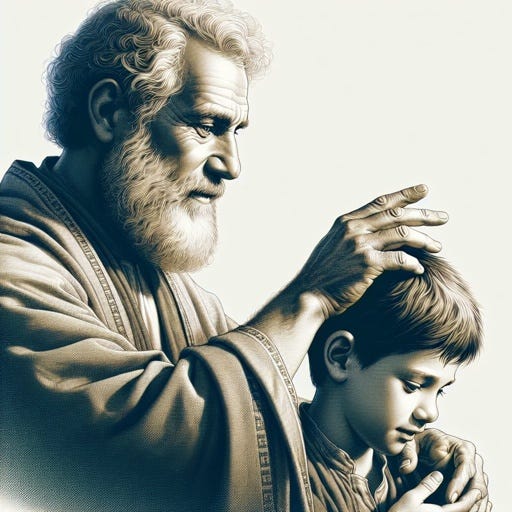
Philosophically, the hand on the head can be interpreted as a moment of human consciousness confronting its own limitations or failures. The head, as the seat of intellect and consciousness, becomes the focal point of this gesture, while the hand, representing action or control, rests upon it.
This symbolizes the mind being constrained or burdened by the outcomes of one's actions. It suggests that rationality alone cannot solve every human dilemma and that the weight of one's decisions must be carried inwardly, even if wisdom or understanding arrives too late.
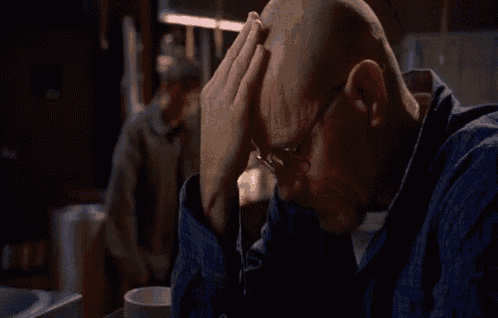
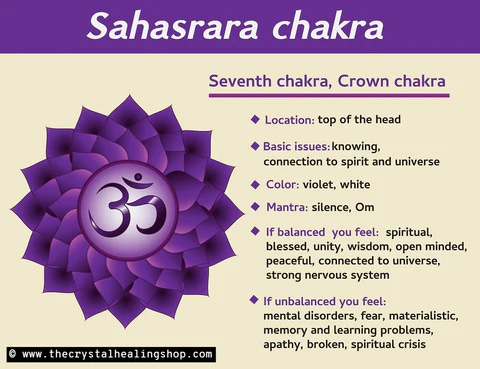
And finally, from a Jungian psychological viewpoint, placing the hand on the head can be seen as a moment where the conscious mind confronts the shadow—the darker, repressed aspects of the psyche. This gesture signifies inner conflict, as the ego struggles to reconcile its desires and actions with the deeper, often contradictory forces within the self. It becomes a metaphor for the moment when one's constructed identity begins to crumble under the truth of unacknowledged motives or mistakes.
A universal expression of grief and disbelief, this code captures Walt’s rare moments of vulnerability. As the weight of his decisions bears down on him, there are fleeting glimpses of a man who realizes the depth of his own ruin. But these moments are brief, overshadowed by his drive to control and dominate, even as the walls close in around him.
I Am a Good Dad (161, 444, 74):
“I’m a good dad” is perhaps Walt’s greatest lie and self-delusion over the course of the show.
He insists that his actions are for his family, that he’s providing for his children.
But the reality is devastatingly clear:
He destroys the very people he claims to protect.
Almeda Fire (161, 444, 74)
The Almeda Fire that ripped through southern Oregon on September 8, 2020, felt like a biblical reckoning, turning entire cities into scenes of desperation and survival.
Phoenix, Talent, and Gates—cities and towns with names that allude to hope, potential, and passage—became landmarks of devastation that day, places forever marked by flames that showed no mercy.
There’s an almost unsettling symmetry to the fact that “Almeda fire” shares the exact same gematria values as Breaking Bad—161, 444, 74—a numerical echo that binds a real-world catastrophe to the fictional narrative of ambition, destruction, and consequence.



Phoenix. The city’s name conjures images of the mythical bird that rises, reborn, from its own ashes. This seems pretty apt given the fact that families were forced to flee their homes when the fire roared through, leaving everything behind to the inferno. The aftermath wasn’t a story of glorious rebirth, however—it was one of grit, of rebuilding piece by piece from what the fire left behind.
In Breaking Bad, Walter White’s transformation is reflective of that.
His empire of lies and violence leaves a wasteland in its wake, and there’s no rising from those ashes, only the ruin that others must live with.
The city of Phoenix still stands, but the scars of that fire run deep, a reminder that some burns don’t come with an easy rebirth.
Talent, a name filled with the promise of greatness, became another grim chapter in the fire’s path. Flames from the Almeda fire devoured entire neighborhoods in Talent within minutes, a brutal reminder that even the most extraordinary feats in human potential can be reduced to mere rubble in an instant.
Walter White, with his exceptional talent for chemistry, mirrors this truth.
What should have been a gift to elevate his life and those around him became a weapon, something that poisoned everything it touched.
The city of Talent may have endured the fire, but its people were forced to confront the fragility of what they’d built, the sobering realization that even the best of us are vulnerable to forces way beyond our control.
Solange’s music video, aptly titled “Almeda”, released A YEAR PRIOR TO THE FIRE in 2019, seems to mirror all this same symbolism discussed here—check the Kali and portal references, then consider all going on with the TALENT in Hollywood now.
And then Gates, a city with a name that suggests portals and the possibility of transition.
What Gates represents is the idea of crossing over, of moving forward into something better, of order out of chaos.









In Breaking Bad, Walt crosses threshold after threshold, each decision sealing off paths of redemption until he’s trapped in a world of his own making.
And while these cities may have survived the inferno, their stories will remain forever fused with the disaster that reshaped them, standing as a testament to fire’s power to transform, to halt progress, to leave those who lived through it to grapple with what remains.
It’s a reminder that destruction, whether wrought by nature or human hands, leaves scars that shape everything that comes after.
Of how fragile hope and potential really are.
Dead and Gone (161, 444, 74)
TI’s 2009 hit song Dead and Gone also captures the irreversible change that defines Walt’s arc. The song mourns the loss of the person one used to be, which resonates perfectly with Walt’s transformation into Heisenberg.
“The old me is dead and gone,” the lyrics say, and it’s a line that encapsulates Walt’s evolution. The man who loved his family and took pride in his teaching is dead long before the series ends, replaced by a figure who is cold, calculating, and relentless.
The song’s depiction of deserted roads and ghosts of the past feels like a metaphor for Walt’s own journey.
Each decision leads him further away from the life he once knew, until all he has left are the ruins of his relationships and the memories of people he betrayed or destroyed. Jane, Gale, Hank—each loss marks a mile on his path of no return, where the Heisenberg persona (or alter personality) has taken over completely.
Walt’s final moments on the show resonate with the song’s message.
His empire, built on lies, violence, and blue crystal, has crumbled, and even his last desperate attempts at redemption can’t erase the profound harm he’s caused.
He dies knowing that the old Walter White is long gone, leaving behind a cautionary tale about how ambition, unchecked and unexamined, can transform even the most well-meaning person into a monster.
Breaking Bad leaves us grappling with the question:
Are the fires we start ever worth the cost?
When we look back at the roads we’ve traveled and the people we’ve hurt, will we see ourselves as heroes or villains, builders or destroyers?
Because in Walt’s world—and perhaps in our own—some choices burn bridges that can never be rebuilt.



